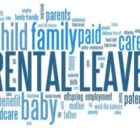Women's Health/Disparities
Poor And Minority Women Face Widening Barriers To Depression Treatment
|
Among women, those who are low-income or minority are less likely to get treatment for depression, according to multiple studies. A report by the Connecticut Behavioral Health Partnership found that women were underrepresented in Medicaid-funded behavioral health services in the state even though research shows that women suffer from the most commonly diagnosed mental health disorders more frequently than men. Racial and ethnic disparities, while still considerable, are decreasing in some physical illnesses. “But in mental health care, in the last 10 years, we see those disparities widening,” said Megan Smith, associate professor in the Departments of Psychiatry and in the Child Study Center in the Yale School of Medicine, who runs the Mental health Outreach for MotherS (MOMS) Partnership®, a program that offers mental health services to “overburdened and under-resourced mothers.”
In this podcast, sponsored by ConnectiCare, Colleen Shaddox discusses the hurdles to mental health care and the programs breaking barriers to care with Yale’s Megan Smith and UConn Health’s Dr. Sarah Nguyen. Lack of insurance coverage, the cost of treatment, a shortage of qualified clinicians, stigma and even fear of losing custody of their children can keep women from seeking help, Smith said.








